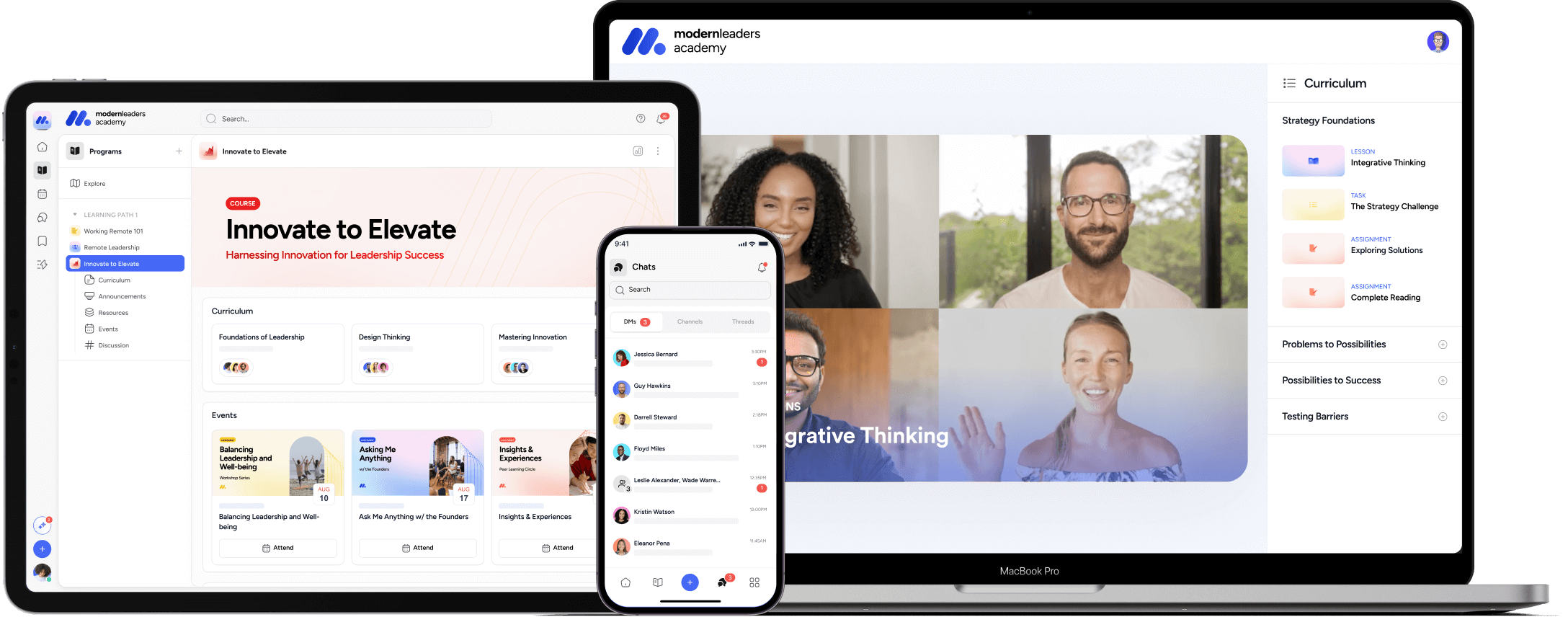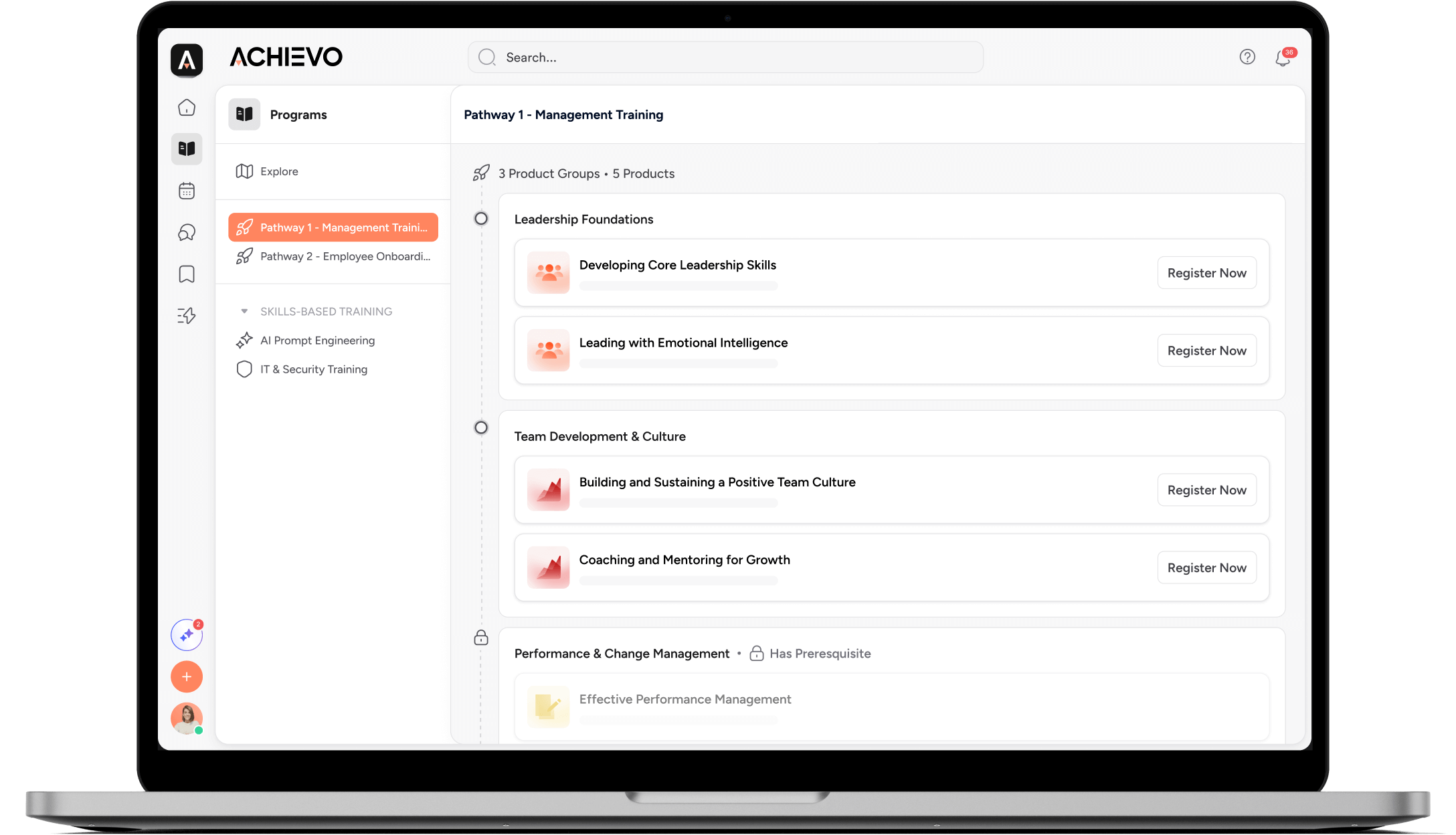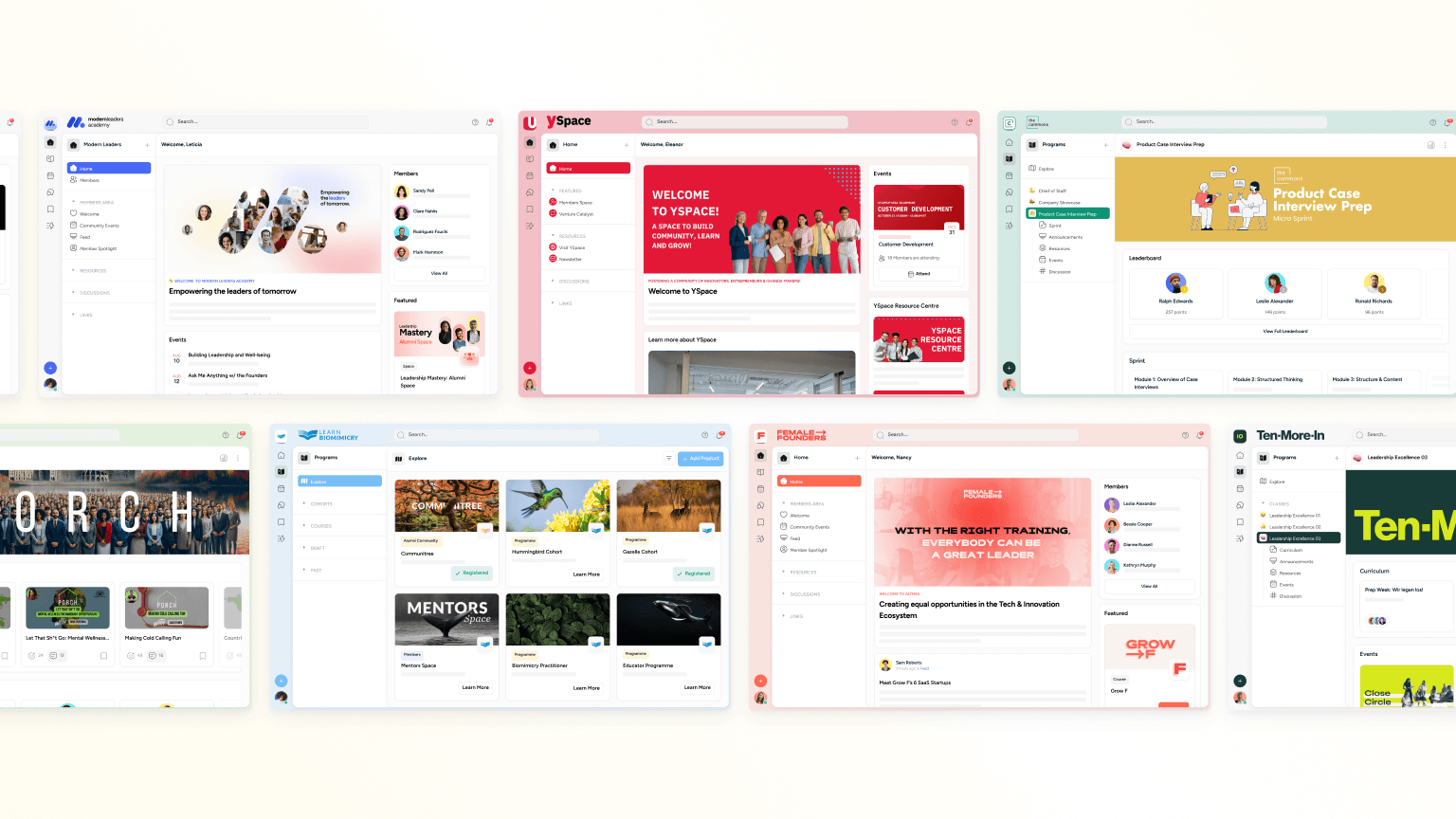LMS Comparison Checklist: How to Select the Right LMS in 2026?

TL;DR
- What it enables: Structured LMS evaluation ensures informed decision-making and identifies platforms aligned with organizational goals.
- What it includes: AI-powered features, customization options, gamification tools, user management, and robust tracking capabilities.
- Key elements: Content creation automation, white-label branding, social learning features, event management, and analytics integration.
- Top 8 for 2026 include: AI-powered LMS, extensive customization, gamification, user management, tracking tools, technical requirements, customer support, cost considerations.
- Why it matters: Saves time and money while delivering personalized, scalable learning experiences with enhanced engagement.
Why is it important to compare LMS features?
An LMS comparison checklist is a vital part of the LMS selection process.
It ensures that all critical aspects of various learning management systems are thoroughly evaluated, leading to informed decision-making. The LMS market is vast and varied, and without a structured approach, it’s easy to miss out on important LMS features that could be crucial for your organization’s success.

A well-structured checklist saves time and money by quickly filtering out unsuitable platforms and focusing on those that meet your LMS requirements.
It fosters critical thinking about essential versus optional LMS features, ensuring a thorough evaluation that aligns with your business goals.
An LMS evaluation criteria checklist streamlines the selection process, sets clear expectations, and ultimately helps identify the best LMS for your organization.
What are the most essential LMS features to consider in 2026?
Evaluating different learning management systems requires a keen eye on how these features align with your organization’s specific needs.

The following subsections delve into user management, course creation and authoring tools, and tracking and reporting capabilities.
Understanding these elements will help you in assessing the overall value and cost-effectiveness of each LMS option.
Here's a quick look:
- AI-powered LMS
- Extensive customization and white-label solution
- Gamification and learner engagement
- User management and accessibility
- Robust tracking and reporting tool
- Technical requirements for an LMS evaluation checklist
- Excellent customer support
- Cost and budget considerations
#1. AI-powered LMS
Two years ago, LMSs were primarily used for managing training and learning programs, serving as all-in-one platforms for storing files and creating courses for learners. Today, this concept is outdated, and modern LMS platforms offer much more.
When selecting a learning management system, it's essential to choose an AI-powered platform. Compared to non-AI LMS, AI LMS accelerates content creation, streamlines content management, and assists in managing your learning community.
With an AI model that can be trained on your data, this becomes a true game-changer.
Traditional LMS vs AI-powered LMS: a quick comparison
This comparison highlights the significant advancements AI-powered LMS platforms offer over traditional LMS systems. By leveraging AI technology, organizations can enhance their learning and development strategy, delivering more effective and personalized training programs.
AI-powered content creation
A robust learning management system (LMS) solution should offer advanced AI tools that simplify the creation of engaging and interactive training materials.
These AI-powered tools enhance content development by automating processes, saving time and resources while ensuring high-quality standards are maintained.
Supporting diverse content types, such as:
- texts and images
- quizzes and assignments
- course outlines and lesson plans
- entire curriculums with modules
- video assets such as transcripts and summaries
- discussion and channel posts & replies
is crucial for accommodating different learner preferences. AI-powered LMS platforms excel in this regard by providing personalized content recommendations and adaptive learning paths tailored to individual needs.
Experience how Disco AI generates an entire curriculum in minutes:
Interactive content, quizzes, and customized learning paths significantly enrich the online learning experience.
An AI LMS enables the creation of such varied and engaging training content, leading to more effective and personalized training programs. With AI-driven insights, trainers can continuously refine course materials based on learner engagement and performance data.
🪩 Take a look at the Best AI Quiz Generator
AI-powered community management
The power of AI in managing a community within a learning management system (LMS) is transformative, offering immense benefits that save hundreds of hours of operational work compared to traditional non-AI LMS platforms.
An AI-powered LMS, like Disco, expertly handles the myriad tasks that community managers face, whether managing a small group or overseeing large communities.
For instance, Disco's AI community assistant is specifically designed to boost engagement and simplify community management:
- generates discussion posts and channels
- answer member queries based on your training data
- provides inline suggestions to improve your community engagement
- allows you to upload existing materials to train AI models inside the platform
Take a look at how Disco AI re-engages inactive members:
#2. Extensive customization and white-label solution
Customization options in a learning platform are essential for creating a personalized and branded learning experience.
Modern LMS platforms, like Disco, provide extensive customization features that allow organizations to tailor their learning environments without needing technical teams or advanced tech knowledge.
This not only saves time and costs but also ensures that the LMS aligns with an organization's unique brand identity and learning objectives.
Customizable LMS solutions enable adjustments to themes, layouts, and interfaces, reinforcing brand consistency and enhancing user engagement.
With Disco as an example, you can customize the ff:
- custom domain and subdomain
- brand colors, logos, and images
- community logo, favicon, and email logo
- custom labels and appearances
- homepage layout with modular blocks
- light and dark modes are available

Additionally, these platforms offer flexibility in configuring features and functionalities to meet specific needs, making them invaluable for implementing effective learning and development strategies.
#3. Gamification and learner engagement
Incorporating gamification and learner engagement features is essential when choosing the best learning management system for your organization or enterprise.
These elements play a crucial role in enhancing learner motivation and participation, making the educational experience more interactive and enjoyable.
When compiling your LMS comparison checklist, consider the following features:
Social and collaborative learning
Social learning fosters collaboration and peer interaction, which are vital for a thriving learning environment.
Look for LMS platforms that offer discussion forums and group activities, enabling learners to share insights and learn from each other. This feature should be prioritized on your checklist as it encourages a community-driven approach to learning.
Discussion channels
Discussion channels provide a platform for learners to engage in meaningful conversations and debates, enhancing their understanding of the subject matter.
Ensure the LMS you choose supports robust discussion channels that facilitate seamless communication among users. This feature should be included in your checklist to promote active participation and critical thinking.
Watch how Disco AI generates a post to initiate discussion:
Event management tools
Event management tools are essential for organizing and managing virtual events, workshops, and webinars.
These tools should be user-friendly and integrate seamlessly with the LMS, allowing learners to participate in live sessions and gain real-time insights.

When evaluating LMS platforms like Disco, consider these essential features:
- Capability to host various event types, including in-person, online, and third-party hosted events
- Options for organizing group events with privacy settings to make them either private or public
- Seamless integration with tools like Zoom, Slack, and Google Calendar
- Strong integration with course builders to facilitate both product and community events
- Quick generation of AI video assets, such as transcripts and summaries
- Advanced event reporting features, including feedback and attendance reports
Watch how Disco AI generates video assets in seconds:
Adding event tools to your checklist ensures that your LMS can support diverse learning formats and enhance learner engagement.









